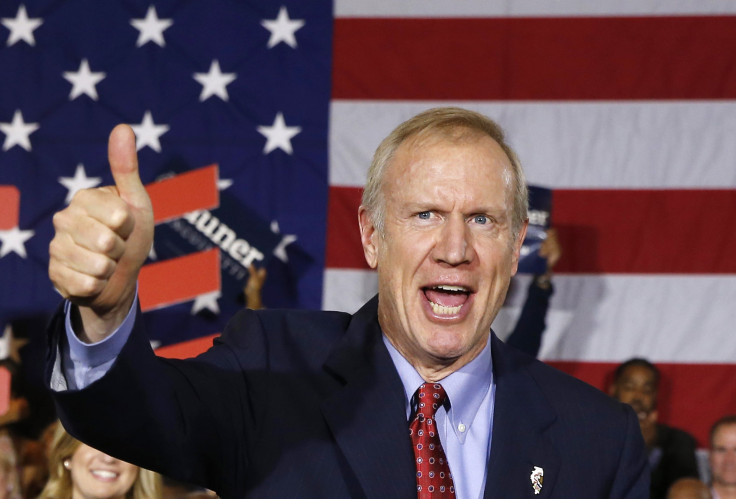Illinois Governor Bruce Rauner Proposes Local Right-to-Work Zones, Ban On Political Spending By Public Sector Unions

Illinois’ new Republican governor, Bruce Rauner, and organized labor have never gotten along. Now the relationship is souring even more. In his first State of the State address since taking office in January, Rauner voiced support for two proposals that are anathema to U.S. organized labor: so-called right-to-work zones and a ban on political spending by public sector unions.
Under Illinois law, unions are permitted to collect dues from all the workers they are legally certified to represent in a given workplace. The idea is to prevent nonmembers from “free-riding,” that is, receiving the benefits of a union contract without paying for the costs of negotiation and administration. “Right-to-work” laws prevent unions from making membership automatic and collecting fees from nonmembers.
In his speech to the legislature Wednesday afternoon, Rauner argued in favor of local-level right-to-work laws -- which he termed “employee empowerment zones” -- as a form of economic stimulus.
“[These] zones will increase jobs for residents, increase economic activity for local businesses and generate more tax dollars for local governments,” Rauner said.
The proposal miffed the state’s unions.
“Gov. Rauner’s right-to-work-for-less scheme would cause wages to significantly drop for all working families while decimating the middle class,” Tom Balanoff, Illinois State Council president of the Service Employees International Union, said in a statement. “Right to work for less is not economic development. It is not empowerment. It is economic regression.”
Rauner’s support for local right-to-work comes on the heels of a push from conservative groups like the American Legislative Exchange Council and the Heritage Foundation to pass such measures in cities, towns and counties across the country. These groups say such laws promote economic growth by attracting employers who would otherwise be put off by a strong union presence. Since last December, five counties in Kentucky have approved right-to-work ordinances.
Foes of organized labor see local-level right to work as a strategic alternative to a more all-encompassing, statewide measure. The latter would stand virtually no chance of passing the Democratic-majority Illinois Legislature. Local ordinances simply avoid that obstacle.
Rauner also called for a ban on political contributions from all organizations with a state collective bargaining agreement.
“The governor’s proposal to bar public employees from participating in our democracy would further tilt a playing field weighted heavily in favor of big business and the wealthy,” said Roberta Lynch, executive director of Council 31 of the American Federation of State, County and Municipal Employees, the state’s largest public sector union.
Rauner’s proposals are likely to face an uphill battle, but Democratic House Speaker Mike Madigan sounded a surprisingly cautious note when asked about them by the New York Times.
“I wouldn’t characterize anything as a non-starter,” Madigan said.
© Copyright IBTimes 2024. All rights reserved.





















